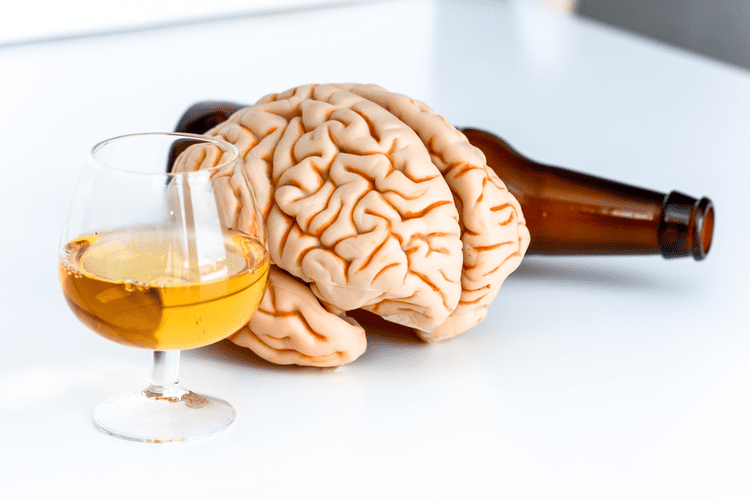Although most research has focused on the effects of heavy alcohol consumption on the immune system, several studies have also confirmed that even moderate consumption can have significant effects on the immune system. For example, one study found that women who consumed 330 mL of beer for 30 days exhibited a significant increase in leukocytes, mature CD3+ T-cells, neutrophils, does alcohol weaken your immune system and basophils. In contrast, men who consumed a similarly moderate amount of beer for the same period exhibited a significant increase in basophils alone. Just overdoing it once slows your body’s ability to fight germs for up to 24 hours. That may be part of the reason you’re more likely to get illnesses like liver disease, pneumonia, tuberculosis, and certain cancers.

The mechanisms by which moderate alcohol consumption might exert these beneficial effects are only beginning to emerge. In a study examining the impact of moderate alcohol consumption on gene-expression patterns in blood cells (Joosten et al. 2012), young men consumed either 100 mL vodka with 200 mL orange juice or only orange juice daily during dinner for 4 weeks. After this period, the moderate-drinking participants exhibited down-regulation of a transcription factor (i.e., NF-Kappa B), modulation of pathways of antigen presentation, altered B- and T-cell receptor signaling, and reduced IL-15. Alcohol abuse also leads to a significant elevation of activated CD8 T cells, measured by increased expression of human leukocyte antigen (HLA)-DR in adult males who consumed an average of 23 drinks/day for approximately 27 years that persisted for up to 10 days of abstinence (Cook, Garvey et al. 1991).
What happens if your immune system gets too weak?
Alcohol consumption also damages epithelial cells, T cells, and neutrophils in the GI system, disrupting gut barrier function and facilitating leakage of microbes into the circulation (see the article by Hammer and colleagues). Alcohol can either activate or suppress the immune system depending on, for example, how much is consumed and how concentrated it is in the various tissues and organs. That dual action predisposes heavy drinkers both to increased infection and to chronic inflammation.
- For example, a 2015 study in the journal Alcohol found that binge drinking can reduce infection-fighting white blood cells known as monocytes in the hours after peak intoxication, essentially weakening your immune system.
- Recent studies have shown that the microbiome modulates immunity in the gut, and in turn, immunity modulates the microbiome in the gut (Belkaid and Hand 2014).
- Similar results have been seen in SIV infection of male nonhuman primates (Bagby, Stoltz et al. 2003, Molina, McNurlan et al. 2006, Poonia, Nelson et al. 2006, Marcondes, Watry et al. 2008).
- To elicit a response from the cell-mediated arm of the adaptive immunity, antigens need to be presented to the CD4+ and CD8+ T-cells.
- Their main role is to capture, ingest, and process antigens in order to present them on their surface to cells of the adaptive immune response (i.e., to the T-lymphocytes).
- For example, Nagy discusses how the leakage of bacterial products from the gut activate the innate immune system in the liver, triggering inflammation that underlies ALD, a condition that affects more than 2 million Americans and which eventually may lead to liver cirrhosis and liver cancer.
- They include drugs to treat allergies, arthritis, lupus, IBS, and organ transplant.
In contrast to these observations, moderate consumption of beer (330mL for women and 660mL for men) for 30 days resulted in a significant increase in the number of leukocytes, mature CD3+ T lymphocytes, neutrophils and basophils in women, while only basophils were increased in men (Romeo, Warnberg et al. 2007). Once in the system, alcohol is broken down into a harmful chemical that damages the DNA. Continual drinking makes it difficult for the body to repair or counter this damage. Common types of cancer linked to excessive alcohol consumption include those found in the colon, breast, liver, esophagus, throat and mouth. These foods may help your body make more of the white blood cells you need to fight off infections. Fresh produce and nuts and seeds pack a lot of zinc, beta-carotene, vitamins A, C, and E, and other nutrients you need for a healthy body.
How Alcohol Can Affect Your Immune System
After drinking 8 to 9 units of alcohol, your reaction times will be much slower, your speech will begin to slur and your vision will begin to lose focus. The study researchers, led by Ilhem Messaoudi of the School of Medicine at the University of California, Riverside, say their research may help lead to a better understanding of how the immune system works, and how to improve its ability to respond to vaccines and infections. Drinking while pregnant increases the risk of birth defects, neural development and immune system development, especially during the first trimester. It can also result in behavioral, learning and communication problems that last well into adulthood.
The immune system is how your body defends itself from infections — like harmful bacteria and viruses — and prevents you from getting sick. But just like a muscle, the immune system can become weak and fail to protect you against infection as well. In this interview, we speak with Jack O’Meara, co-founder and CEO of Ochre Bio, a pioneering force in liver disease treatment.
How Does Alcohol Consumption Affect the Immune System?
Acetaldehyde is the toxic byproduct that contributes to tissue damage, alcohol dependence, and addiction (Zakhari 2006). It can also bind to other proteins to form adducts, such as malondialdehyde (MDA) and MDA-acetaldehyde (MAA), which play a key role in the development of liver injury and stimulate antibody responses that further promote liver inflammation and fibrosis (Tuma and Casey 2003). In addition, oxidation of ethanol by CYP2E1 leads to the formation of reactive oxygen species (ROS).
In addition, such studies could reveal the pathways that are modified by moderate alcohol consumption to enhance immune response to vaccination. Studies over the last 30 years have clearly demonstrated that chronic ethanol abuse impairs the functions of both T cells and B cells. Chronic alcohol consumption results in lymphopenia with a loss in circulating T cells and B cells. The decrease in T cells is accompanied by increased homeostatic proliferation, which in turn leads to increased T-cell differentiation, activation, and conversion to the memory phenotype. Impairment in T-cell recruitment also was observed in mouse models of chronic alcohol exposure.



Recent Comments